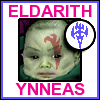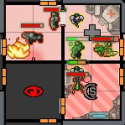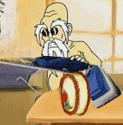|
Jazerus posted:I see a lot of discussion about Snow Crash and Cryptonomicon whenever a Stephenson discussion pops up on SA for whatever reason, but very little about the Baroque Cycle. Personally I don't really enjoy any of his books other than the Baroque Cycle (Quicksilver in particular) - do most people not care for them? I love the baroque cycle! IMO Jack Shaftoe is the most fun character to read in anything I've been exposed to. However, if Quicksilver is your favorite among those books that probably says something about your preferences and what you might not enjoy Stephenson's other work. Quicksilver was very difficult to get through for me. Upon finishing the trilogy I appreciated it a lot more, but mostly for all the setup it did, not as much for the story it told.
|
|
|
|

|
| # ? Apr 25, 2024 17:48 |
|
Jazerus posted:I see a lot of discussion about Snow Crash and Cryptonomicon whenever a Stephenson discussion pops up on SA for whatever reason, but very little about the Baroque Cycle. Personally I don't really enjoy any of his books other than the Baroque Cycle (Quicksilver in particular) - do most people not care for them? It was all really very funny and usually entertaining, it was just so goddamn long.
|
|
|
|
Zodiac is interesting, quick, frenetic (for Stephenson) fun. Anathem is basically the slowest, nerdiest, most tangential Stephenson book ever (I have not yet read the Baroque Cycle, its on my plan for this spring). So Anathem is also awesome. A lot of Stephenson's books feel like he thought a topic was cool, studied it really in-depth for like a year, and then just had to tell everyone about it, so wrote a book about it.
|
|
|
|
Jazerus posted:I see a lot of discussion about Snow Crash and Cryptonomicon whenever a Stephenson discussion pops up on SA for whatever reason, but very little about the Baroque Cycle. Personally I don't really enjoy any of his books other than the Baroque Cycle (Quicksilver in particular) - do most people not care for them? I personally hold that the Baroque Cycle is the best thing he's ever done (although Anathem either comes very close, or matches it). The biggest impediment to it's popularity is, like others have said, the incredible length of the drat thing. It's not just this either: like a lot of Stephenson's later novels it is very dense, very complex at times, and not that interested in holding your hand to spell things out if you are mixing up characters or missing subtext. It's a series that very, very much rewards two or even three rereads to get everything out of it, and that is a tall order for a series that's 8 books long and god knows what the page count is. Speaking of pages, a couple years ago I got a chance to head to Seattle and visit the science and fiction museum that's in the Seattle Centre there when the original manuscript was still on display. Stephenson wrote the entire thing out on paper first, in longhand, before actually digitizing it for printing. This is the snap I took of it at the time. It was impressive! I dunno what it says about me that I could look at that top page there and place where it actually took place in the whole series.
|
|
|
|
Meiteron posted:Speaking of pages, a couple years ago I got a chance to head to Seattle and visit the science and fiction museum that's in the Seattle Centre there when the original manuscript was still on display. Stephenson wrote the entire thing out on paper first, in longhand, before actually digitizing it for printing. That is absolutely mind boggling. I can't imagine the motivation it takes to sit down everyday and slog your way through writing a 3,000+ page series by hand. I have Quicksilver sitting on my bookshelf like some ancient tome and don't even have the motivation to begin reading it.
|
|
|
|
Jazerus posted:I see a lot of discussion about Snow Crash and Cryptonomicon whenever a Stephenson discussion pops up on SA for whatever reason, but very little about the Baroque Cycle. Personally I don't really enjoy any of his books other than the Baroque Cycle (Quicksilver in particular) - do most people not care for them? I feel like the baroque cycle is Stephenson's best work, but not really his most approachable. You can't look at it as three separate books, you really have to view it as a singular work. Quicksilver sets up the characters and the setting, Confusion introduces the conflict, and System of the World is the resolution. The problem with that is that now somebody has to read a thousand pages before they've even finished with the setup, and that's a pretty tall order. Plus if you read Quicksilver and then take a break before reading the next one because you need some time to digest it, you're hosed because there's no way you'll remember who all the secondary characters are, and their relationships to each other. So now you either need to read quicksilver again, or charge on without understanding what's happening, neither of which is really an entertaining prospect. So if somebody tells me "Oh I tried to read the Baroque cycle but I just couldn't get into it", I'll suggest they give it another try but I don't push past that. It's just not a work that's for everybody.
|
|
|
|
Double posting to mention that the kindle version of Cryptonomicon is on sale for two dollars; if you've got a kindle and want an easy introduction to Neal Stephenson, this is a good one. A decent mix of action and info dumps, plus some pretty great characters. http://www.amazon.com/Cryptonomicon-Neal-Stephenson-ebook/dp/B000FC11A6/ref=pd_zg_rss_ts_kstore_668010011_10
|
|
|
|
The baroque cycle needs either a few readings to really understand what the hell is going on, or a good background of the scientific, religious and political landscape of Europe certa 1660 - 1715. Its VERY well researched but a lot of the time it left me befuddled and having to go to Wikipedia to figure out who James the II was or what the Glorious Revolution was all about. Once I made it through the books the first time, the second reading was a lot easier and very worthwhile.
|
|
|
|
Coca Koala posted:Double posting to mention that the kindle version of Cryptonomicon is on sale for two dollars; if you've got a kindle and want an easy introduction to Neal Stephenson, this is a good one. A decent mix of action and info dumps, plus some pretty great characters. I wouldnt call it 'easy'. Accessable, yes. Easy, no.
|
|
|
|
Cimber posted:I wouldnt call it 'easy'. Accessable, yes. Easy, no. Oddly enough I've had the most success getting friends/family/coworkers into Stephenson by recommending Anathem over Crypto/Baroque or his earlier works. Yes, the scifi-language thing can trip people up at the start but a lot of it is either very analogous to real words (when it says that they're setting up a Dialog and someone is about to get planed, that's pretty easy to figure out) or can be picked up from context. The actual prose and plot is pretty straightforward (the stuff near the end notwithstanding) and easy to read through for most of the book, compared to the more dense and confusing stuff you can find in some of his other work.
|
|
|
|
Cimber posted:I wouldnt call it 'easy'. Accessable, yes. Easy, no. It might also be that the draw of Neal Stephenson books are the joy that he takes at diving into subjects. It can be easier or harder to follow him along for the ride, but if it's not something you want to do, you probably won't like his books.
|
|
|
|
Honestly, I feel like Cryptonomicon is one of the easiest of his books to read. It's long, but the plot never goes totally off the rails like it does in Snowcrash or The Big U, and the infodumps are generally short enough that you're never mired in them. As long as you're willing to take the mathmatical notation that pops up occasionally at face value (and truly, the math isn't that hard; he takes the sum of a series at one point, but the reasoning is pretty well explained in prose and you can easily follow along with the idea behind what's happening) and you can keep the characters straight in your head (much easier in Crypto, when each character has not only their own distinct voice, but also a distinct narration style that Stephenson uses during their segments), there's not really anything that's confusing or tricky about it. I think I've got like a hundred pages left to read on my current run through, and then I'll start in on Quicksilver again next week for my third or fourth reading of the Baroque Cycle. edit: Okay, so one of the things that I really like about Stephenson's works is how they manage to pretty accurately predict the future. Snowcrash was written in 1992, and predicted a lot about how computers would get networked together. Cryptonomicon was written in 1999 and jumped on the crypto-currency train about a decade before bitcoins were a thing; basically the only thing in Cryptonomicon which dates it to a particular era is some references to floppy disks. For books which have technology as a crucially central theme, Stephenson does an incredible job of portraying technology in a very timeless way. Coca Koala fucked around with this message at 03:10 on Mar 11, 2014 |
|
|
|
Coca Koala posted:Honestly, I feel like Cryptonomicon is one of the easiest of his books to read. It's long, but the plot never goes totally off the rails like it does in Snowcrash or The Big U, and the infodumps are generally short enough that you're never mired in them. As long as you're willing to take the mathmatical notation that pops up occasionally at face value (and truly, the math isn't that hard; he takes the sum of a series at one point, but the reasoning is pretty well explained in prose and you can easily follow along with the idea behind what's happening) and you can keep the characters straight in your head (much easier in Crypto, when each character has not only their own distinct voice, but also a distinct narration style that Stephenson uses during their segments), there's not really anything that's confusing or tricky about it. One of the things I like about cryponomicon (As well as many of his books) are the small details you may never notice. For example, the professor who Randy argues with during the 'war as text' thing is named Günter Enoch Bobby Kivistik, for one of the three possible fathers
|
|
|
|
blue squares posted:Can anyone explain how in the hell Snow Crash ended up on Time's list of 100 best books since 1923? It was a fun read, but c'mon. Pages and pages of dry lecturing on Sumerian myth and the characters don't have one iota of an arc. Snow Crash is a lot more interesting if you read it as a satire of Cyberpunk. It's a book that starts off with a pizza delivery driver doing deadly serious deliveries for a corporate mafia (all of that literal) and IIRC (been awhile since I read it) ends with the aforementioned pizza samurai, also a huge nerd, driving a motorcycle into a crowd of thousands in cyberspace and setting off a virtual fireworks display while saving the day. You have corporate governments with patriotic wage slaves tied down by inane bureaucracy while a Texan billionaire is running an aircraft carrier. It takes everything that cyberpunk tried to do and turns it on its head beautifully.
|
|
|
|
Coca Koala posted:Honestly, I feel like Cryptonomicon is one of the easiest of his books to read. It's long, but the plot never goes totally off the rails like it does in Snowcrash or The Big U, and the infodumps are generally short enough that you're never mired in them. As long as you're willing to take the mathmatical notation that pops up occasionally at face value (and truly, the math isn't that hard; he takes the sum of a series at one point, but the reasoning is pretty well explained in prose and you can easily follow along with the idea behind what's happening) and you can keep the characters straight in your head (much easier in Crypto, when each character has not only their own distinct voice, but also a distinct narration style that Stephenson uses during their segments), there's not really anything that's confusing or tricky about it. So yes, I think Cryptonomicon is one of his easiest books because "getting it" isn't critical to enjoying it.
|
|
|
|
Ravenfood posted:You don't even need to take the math literally. The first time he tried to explain Van Eck phreaking, I had no idea what the gently caress he was on about, so I just went "okay, the characters are convinced this works. They also know how to do it. Now I won't be surprised when they, or someone else, does this! Huzzah!" It really isn't any different from treating it as an infodump in a scifi book where someone explains positronic transdermal teleoperation or whatever. Is it more rewarding when you can follow him totally? Oh yes. The cardgame cipher is really fun when it clicks. Cryptonomicon especially, I think, can be enjoyed without it all clicking. Anathem really can't: if you didn't follow the discussions in the last third of the book, the ending just makes no sense. At least, that's how I read it. The card game perl script actually works too if you type it in (I did).
|
|
|
|
For me, I just couldn't get into Cryptonomicon as much as his other books because the Randy plot never drew me in. The stakes were so low compared to the WWII story, especially since he doesn't reveal what they're really planning until practically the very end of the book. Obviously, trying to prevent another holocaust from ever happening is a noble goal, but all you know is that these guys are scheming up some fake business to get capital and internet infrastructure built until they come across the gold and then their true plan is explained. I'm also hoping we get the Shaftoes in the Old West story that links The Baroque Cycle and Cryptonomicon.
|
|
|
|
I just finished Reamde. It was okay I guess but extremely shallow. I don't think I would recommend it.
|
|
|
|
I love Zodiac. Anyone who has ever had to deal with explaining environmental health measurements to laypeople is going to have to take a five-minute  break when the protagonist talks about telling people that pollution levels are over three times the legal limit, because if he tells them that the concentration is actually almost 10,000 times the legal limit then no one will believe him. break when the protagonist talks about telling people that pollution levels are over three times the legal limit, because if he tells them that the concentration is actually almost 10,000 times the legal limit then no one will believe him.
withak fucked around with this message at 21:56 on Mar 12, 2014 |
|
|
|
Cimber posted:One of the things I like about cryponomicon (As well as many of his books) are the small details you may never notice. Atlas Hugged posted:For me, I just couldn't get into Cryptonomicon as much as his other books because the Randy plot never drew me in. The stakes were so low compared to the WWII story, especially since he doesn't reveal what they're really planning until practically the very end of the book. Obviously, trying to prevent another holocaust from ever happening is a noble goal, but all you know is that these guys are scheming up some fake business to get capital and internet infrastructure built until they come across the gold and then their true plan is explained. quote:Magnificent isn’t the word you would normally use to describe Tom Howard; he’s burly and surly, completely lacking in social graces, and doesn’t apologize for it. Most of the time he sits silently, wearing an expression of sphinxlike boredom, and so it’s easy to forget how good he is. Rusty Kettle posted:I just finished Reamde. It was okay I guess but extremely shallow. I don't think I would recommend it.
|
|
|
|
Grifter posted:Reamde didn't really work for me because it felt too implausible. I know that sounds strange when I can perfectly accept a samurai biker hacker, but there was something in how the characters all came together at the end that felt really strained. That aspect of the ending was the only thing that felt slightly off to me. On the other hand, that's how his books seem to go. It's also the kind of snowballing coincidental disaster that I enjoy in authors like Tom Sharpe (or sometimes Terry Pratchett), so I can totally forgive the slightly contrived coincidences. That's also one of the reasons I liked The Big U. It's got lots of Chekov's Guns (including the railgun) that end up getting used in a surprising and awesome way.
|
|
|
|
AlphaDog posted:That aspect of the ending was the only thing that felt slightly off to me. On the other hand, that's how his books seem to go. It's also the kind of snowballing coincidental disaster that I enjoy in authors like Tom Sharpe (or sometimes Terry Pratchett), so I can totally forgive the slightly contrived coincidences. That's also one of the reasons I liked The Big U. It's got lots of Chekov's Guns (including the railgun) that end up getting used in a surprising and awesome way.
|
|
|
|
Yeah, I can understand that. I just didn't think it was that obvious compared to (for instance) Tom Sharpe's books. The idea of a constantly escalating series of disasters that all contribute to the big final disaster is something I enjoy though, and I can understand that if that's not your thing it could be a bit offputting. e: Also, the premise of Reamde seems pretty far-fetched to me to begin with so I guess I didn't have a moment where I ended up going "this part is comparatively unrealistic".
|
|
|
|
Grifter posted:What makes you think Epiphyte [1] or Epiphyte [2] were fake? They're not fake in the sense that they aren't actual companies with employees and a cash flow. It's just that Randy and co. aren't running them because they actually have any interest in those companies. They exist solely to setup the infrastructure they need to accomplish their actual goal.
|
|
|
|
If you don't think that an ex-drug-running millionaire chasing his neice(?) who has been kidnapped by terrorists, assisted by an MI5 agent, a russian killing machine, a biker, survivalist family members, and a bunch of other poo poo I don't remember, while being hunted by a mountain lion is at least self aware if not outright satire, well I don't know what to say. I definitely understand not liking it, but he absolutely went out and wrote the most ridiculous series of events he could think of - doing so was kind of the point of the exercise, I think. I was honestly surprised there wasn't a nuke. I kind of liked Reamde because I read it quite soon after Anathem and it was a nice relaxing ridiculous change of pace, while still keeping with the trademark entertaining digressions.
|
|
|
|
Atlas Hugged posted:They're not fake in the sense that they aren't actual companies with employees and a cash flow. It's just that Randy and co. aren't running them because they actually have any interest in those companies. They exist solely to setup the infrastructure they need to accomplish their actual goal.
|
|
|
|
NovemberMike posted:Snow Crash is a lot more interesting if you read it as a satire of Cyberpunk. It's a book that starts off with a pizza delivery driver doing deadly serious deliveries for a corporate mafia (all of that literal) and IIRC (been awhile since I read it) ends with the aforementioned pizza samurai, also a huge nerd, driving a motorcycle into a crowd of thousands in cyberspace and setting off a virtual fireworks display while saving the day. You have corporate governments with patriotic wage slaves tied down by inane bureaucracy while a Texan billionaire is running an aircraft carrier. It takes everything that cyberpunk tried to do and turns it on its head beautifully. I began Snow Crash last night and I think this is the only sane way to read it. Maybe nerd culture has "ruined" the book retroactively (samurai swords having become a culture signifier for, you know).
|
|
|
|
awesmoe posted:If you don't think that an ex-drug-running millionaire chasing his neice(?) who has been kidnapped by terrorists, assisted by an MI5 agent, a russian killing machine, a biker, survivalist family members, and a bunch of other poo poo I don't remember, while being hunted by a mountain lion is at least self aware if not outright satire, well I don't know what to say. I definitely understand not liking it, but he absolutely went out and wrote the most ridiculous series of events he could think of - doing so was kind of the point of the exercise, I think. I was honestly surprised there wasn't a nuke. I think the problem i had with Reamde is i came out of it not having learned anything cool. Snowcrash I got a lecture on Babylonian mythology Cryptonomicon I got a great lecture about code-breaking and the problems of using secret data appropriately. The baroque series i got a loving huge rear end history lesson Anathem I picked up a bunch of info on philosophy and metaphysics. Reamde I got....nuttin. No real deep themes. It felt more like a rather vapid Tom Clancy book rather than a NS book.
|
|
|
|
You got to learn what Neal Stephenson thinks of himself as a person and a writer. Both fictional writers in the book are based on different aspects of his personality.
|
|
|
|
Cimber posted:Reamde I got....nuttin. No real deep themes. It felt more like a rather vapid Tom Clancy book rather than a NS book.
|
|
|
|
Ravenfood posted:There's some pretty impressive gun spergery in there I guess. Eh, not really, especially by NS standards. Guns aren't his thing, and it showed in the writing I thought. He got some info from friends I recall him saying at a Q&A session he did for the Reamde release.
|
|
|
|
The general theme of "gamification" of work (and vice-versa) was pretty in-depth, as was the increasing fuzziness of online/IRL.
|
|
|
|
The most interesting thing about reamde for me was the discussions for ways to monetize MMOs being just charging for the gameplay itself.
|
|
|
|
I just finished Anathem and really enjoyed it. I'm going to re-read it immediately. Question regarding the ending: What happened with Fraa Jad? Did the end of the book show three different "naratives"? Is everyone aware of these other realities? Was it all a dream? Also, were the Laterrans from Earth?
|
|
|
|
redshirt posted:I just finished Anathem and really enjoyed it. I'm going to re-read it immediately. With the guy being named Jules Verne and them name-dropping Faraday cages, and IIRC someone says Earth offhanded once in the book, so I think so yeah. I think the thing with Jad is that he figured out how to 'access' different Narratives and know what each version of him is doing, but not actually 'travel' between them. So the Jad that randomly picks the right 4-digit code for the valve door is just one Jad of ten thousand also doing it, but we follow that Narrative because it's the one important to the plot. That doesn't explain how Erasmas remembers it in the Narrative that we eventually follow to the end, though (the one where Lodoghir implies that Jad is alive and has altered records to seem dead, but we don't see him again in the book anyway) Anathem was just really interesting. I think I'm going to have to cogitate on it and/or re-read it to really grok it.
|
|
|
|
Jazerus posted:I see a lot of discussion about Snow Crash and Cryptonomicon whenever a Stephenson discussion pops up on SA for whatever reason, but very little about the Baroque Cycle. Personally I don't really enjoy any of his books other than the Baroque Cycle (Quicksilver in particular) - do most people not care for them? I love the Baroque Cycle. It took a bit of time to get into, the first third of Quicksilver was a bit of a slog as things got set up and underway, but then things take off and are non-stop wonderful until the end. Have read Snow Crash (silly fun), Cryptonomicon (good, but different in tone to the BS; maybe it's just that it didn't have Jack in it), and Reamde (bland).
|
|
|
|
WarLocke posted:With the guy being named Jules Verne and them name-dropping Faraday cages, and IIRC someone says Earth offhanded once in the book, so I think so yeah. They discuss this a bit. It's called "collapsing the wave length" or some bullshit like that. It all goes back to the very first chapter of the book where Erasmus is serving as amanuensis. Erasmus's function throughout the whole book is to serve as a witness for the plot. I'd go so far as to say Jaa himself is the protagonist. Jaa is aware of all possibilities simultaneously through some trickery of his order. Further, he is able to allow other people to "see" these possibilities, as dreams or visions or whatever. He then "collapses" the possible narrative with the "real" one, so the witnesses remember what they saw but continue to exist in their original reality. So all these people see the possible outcomes of contact with Arbre, sometimes even witnessing themselves dying in other possible narratives, and retain that knowledge in their original narrative. I think it's all implied that there is no "true" narrative, meaning that every single time Erasmus thought he was going to die, he probably did in another narrative and the story just keeps moving forward in a narrative where he didn't. The whole thing is a really interesting look at the nature of storytelling. Sure, Erasmus should have died over and over again, and hell he even did at one point, but if he did then the story would be over and that wouldn't be a very satisfying conclusion. There's always at least a possibility of survival, even when it seems implausible, and that's the narrative we get to watch.
|
|
|
|
Soggy Muffin posted:Just finished The Diamond Age, and I was slightly disappointed with its ending. It's almost as if he spent too much time with world building and character development and then said "poo poo, I need to wrap this up in the next 50 pages..." The plot flow didn't seem well balanced and would lose momentum here and there, especially in the second half. I always found this to be the issue with coming of age stories. Having your protagonist grow up and struggle to find their place in the world is captivating and the basis of a great story. Trying to resolve all of the problems an actual person has as they come of age in the world is absurd. What his means is that, either your ending is unsatisfying because your protagonist is just barely getting her poo poo together or your ending is unbelievable, because your protagonist is some kind of superwoman. Edit: Goddamnit, that was on page 1, not page 2.
|
|
|
|
Atlas Hugged posted:They discuss this a bit. It's called "collapsing the wave length" or some bullshit like that. It all goes back to the very first chapter of the book where Erasmus is serving as amanuensis. Erasmus's function throughout the whole book is to serve as a witness for the plot. I'd go so far as to say Jaa himself is the protagonist. Jaa is aware of all possibilities simultaneously through some trickery of his order. Further, he is able to allow other people to "see" these possibilities, as dreams or visions or whatever. He then "collapses" the possible narrative with the "real" one, so the witnesses remember what they saw but continue to exist in their original reality. So all these people see the possible outcomes of contact with Arbre, sometimes even witnessing themselves dying in other possible narratives, and retain that knowledge in their original narrative. I just powered through the last 200 pages again, and I think this interpretation is correct. Once the group enters space, they comment on the difficulty they're having in distinguishing between dream and reality. Several of them mention recalling Jad dying, but there he is, still working with them. Samman comments that he thought he destroyed the transmitter, but then realized he did not - Jad did. Jad destroys the transmitter in order to sever the causality link between Abre and the group in orbit, allowing Jad to control the Narrative without outside interference. Furthermore, your point about Erasmas serving as the narrator of the book means he is the agent collapsing our narrative wavelength - by documenting it, and us reading that. So, I think you hit it exactly - Erasmas does die in a couple of spots, but our story goes on, and so we stay with the version of Erasmas that does not die, and helps bring peace among all the aliens.
|
|
|
|

|
| # ? Apr 25, 2024 17:48 |
|
Atlas Hugged posted:They discuss this a bit. It's called "collapsing the wave length" or some bullshit like that. It all goes back to the very first chapter of the book where Erasmus is serving as amanuensis. Erasmus's function throughout the whole book is to serve as a witness for the plot. I'd go so far as to say Jaa himself is the protagonist. Jaa is aware of all possibilities simultaneously through some trickery of his order. Further, he is able to allow other people to "see" these possibilities, as dreams or visions or whatever. He then "collapses" the possible narrative with the "real" one, so the witnesses remember what they saw but continue to exist in their original reality. So all these people see the possible outcomes of contact with Arbre, sometimes even witnessing themselves dying in other possible narratives, and retain that knowledge in their original narrative. No, Fraa Jad actually shifts his consciousness to different causal domains. Thats why Fraa E feels the everything killers going off in his belly (they were the big pill they swalloed before taking off) when they were attacked by the guards. But in another casual domain Fraa Jad was able to meet and talk to the space ship captain and figure out questions about the wick, IE Arbe was upstream in the HTW than earth and the other two planets. Also don't forget that Fraa Jad 'died' on launch, which is why he was always so quiet in space until he smashed the transmitters. They developed this ability while sitting around watching nuclear waste. They were getting radiation poisioning from the waste, so they figured out how to shift consciousness to narratives that they did not take the damage at that point in time. Thats also how Fraa Jad is supposed to be hundreds if not thousands of years old. Yes, it was earth. Jules Verne was french, which is why he called it "laterre", it was french, Le Terre. Also the rockets they called the monkyfeeks? He was calling them magnificant when he saw them. C'est magnifique!" But Fraa E was spelling it phonetically. Cimber fucked around with this message at 14:13 on Mar 14, 2014 |
|
|



























